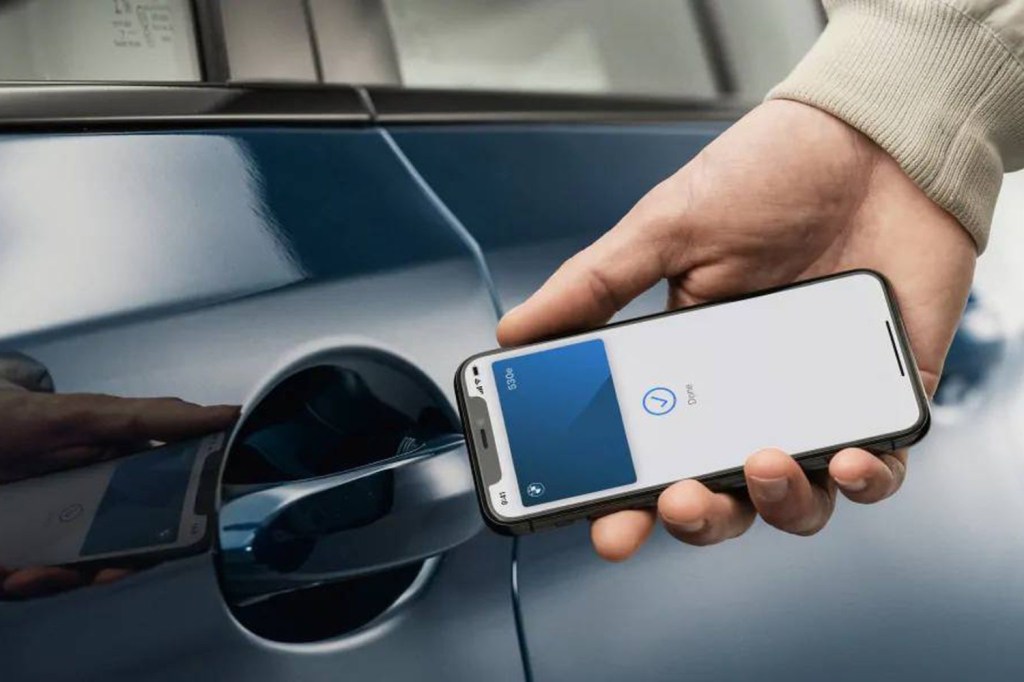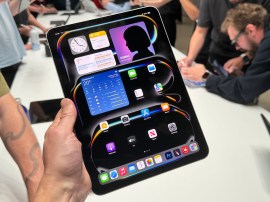Has the Apple Car been cancelled? All the latest rumours
An Apple-badged EV may no longer be in the works, according to reports

Apple products are typically small enough to fit in a pocket, on your wrist, in a bag, or at worst atop a desk. At one point the company’s next big thing was set to be truly massive indeed – an Apple car. Except new reports now suggest the project has been cancelled.
According to Bloomberg, the news came as a big surprise to the nearly 2000 employees working on the project. Many of them are apparently being moved to Apple’s artificial intelligence division, with others expected to be laid off. Insiders said Apple had already scaled back the project once, ditching plans for autonomous driving for a more mainstream electric car that could’ve rivalled Tesla for charging speed and range. Now an Apple Car will seemingly be a “what if” moment in history.
For something Apple never actually made official, there’s a whole bunch of info out there about the Apple Car. Read on for the top details, and all the stories that popped up over the last few years.
The Apple Car’s development history

It was common knowledge Apple was at one point aiming to enter the automotive space, with Steve Jobs even considering building an Apple Car in 2008. Codenamed Project Titan, the original concept was a self-driving electric car; it was worked on in secret by a skunkworks of Apple engineers.
Things picked up incredible steam in 2015, with the Wall Street Journal reporting Apple would triple the size of its car team – which by then already consisted of around 600 people. The firm poached employees from other automakers, including Tesla, Ford, BMW, and more.
There was also word Apple was negotiating with BMW to base the Apple Car on the BMW i3, similar to how the original Tesla Roadster was based on the Lotus Elise. However, that deal reportedly fell apart as Apple didn’t want to cede control over the software.
Wild rumours then suggested Apple was in talks to acquire McLaren, and put its considerable design prowess into building a car for a surely less-wealthy audience – though this didn’t get very far, if it was ever seriously discussed at all. Apple was also at various points in talks with Volkswagen, Hyundai, Lucid Motors, and Canoo, as recently as the start of 2022.

Then things went quiet for a while, but Apple’s commitment to its CarPlay software in the early 2020s saw interest climb again. Tim Cook eventually acknowledged the existence of the Apple Car project in a 2021 interview. A report from the Korea Times around the same time revealed Apple was in talks with LG to supply EV components.
By this point Apple was still planning on a self-driving car that didn’t need any driver interaction. According to Bloomberg’s Mark Gurman, it wouldn’t even come with a steering wheel or pedals. The firm holds a permit from the Californian DMV to test self-driving cars in the state, and had pushed for exemptions from the National Highway Traffic Safety Administration for a car without manual controls. Legislators are sticklers for vehicle safety, though, and testing a car without pedals or a steering wheel is very different to selling one to Joe Public.
In July 2022 Apple hired dynamics expert Luigi Taraborrelli from Lamborghini. The 20-year Lambo veteran had worked on some of the Italian firm’s most iconic modern supercars, including the Aventador and Urus SUV. Then in September, the team was further bolstered by Gregory Baratoff – previously VP of Hyundai’s autonomous vehicles lab.
The following year, a report from Autoevolution suggested Apple had hired more test drivers for its fleet of 67 autonomous vehicles, which were apparently bumping kerbs quite a lot.
While the initial plan was to launch a car with Level 5 automation, aka full self-driving, 2023 brought news Apple had scaled back those ambitions rather drastically. According to Bloomberg, the Apple Car was being bumped all the way down to Level 2+, or partly automated driving — something already found in cars from manufacturers like Tesla.
This report also suggested a release date had been pushed to 2026 at the very earliest, and that Apple was aiming to keep the price under $100,000. There was also, of course, the small matter of regulatory approval and testing, which could’ve delayed the whole thing for several years.
The project was finally cancelled outright in February 2024, with Apple deciding to shift focus to generative artificial intelligence.
What would the Apple Car have been like?

We never got to see the Apple Car in the metal, but rumours and reports give us an idea of what it looked like – and the sort of interior tech it would arrive with.
Originally it was to be limo-like inside, with no steering wheel or pedals and inward-facing seats. A curved roofline and trunk that rises up for easier access to what’s inside were also mooted by Wayne Ma of The Information. That then changed when Apple gave up on fully autonomous driving, with a more traditional seat layout and manual controls.
Apple was designing its own battery technology, rather than source one from the automotive world, with the aim of significant range advantages over existing EVs. There was never any indication of range, charging speeds, or motor performance mentioned, with Apple still in the early development stages/focusing instead on software.
The company filed a patent for “a vehicle video system to aid in navigation”, which would’ve let you pick a stopping point based on camera feeds from around the car, rather than from a generic ZIP code and a 2D map. Pull into a shopping centre, for example, and you’d be able to point to a space for the car to drive into. Another patent for ‘doors with adaptive positioning’ describes a smarter version of minivan-like sliding doors, but there was no suggestion it was a lock for appearing on the Apple car.
Apple’s demonstration of 2023’s CarPlay update at WWDC in 2022 gave us the best look yet at Apple’s infotainment system plans. It fully takes over the infotainment and digital dashboard of any car it boots up on, even replacing the speedo and information like remaining electric range.
Ultimately that software takeover has seemingly superseded the need for the firm to launch a car at all.
When would we have seen an Apple Car?
Building a car from scratch isn’t easy, as Dyson found out. The Apple Car spent more than a decade in development, and had several mooted launch dates before the firm apparently pulled the plug entirely.
When the project became more than a whisper in 2015, Apple reportedly wanted to have something “ready to ship” in 2019 – although it’s unclear if that meant revealing the finished product, or having it on customer’s driveways. A later report claimed that a 2021 debut was more likely, but both dates came and went.
In August 2018, analyst Ming-Chi Kuo suggested the Apple Car would be released some time between 2023 and 2025, but Mark Gurman at Bloomberg, suggested a delayed release around 2028. It now seems that won’t be the case either, with the project cancelled – albeit unofficially, given Apple never made it public in the first place.

